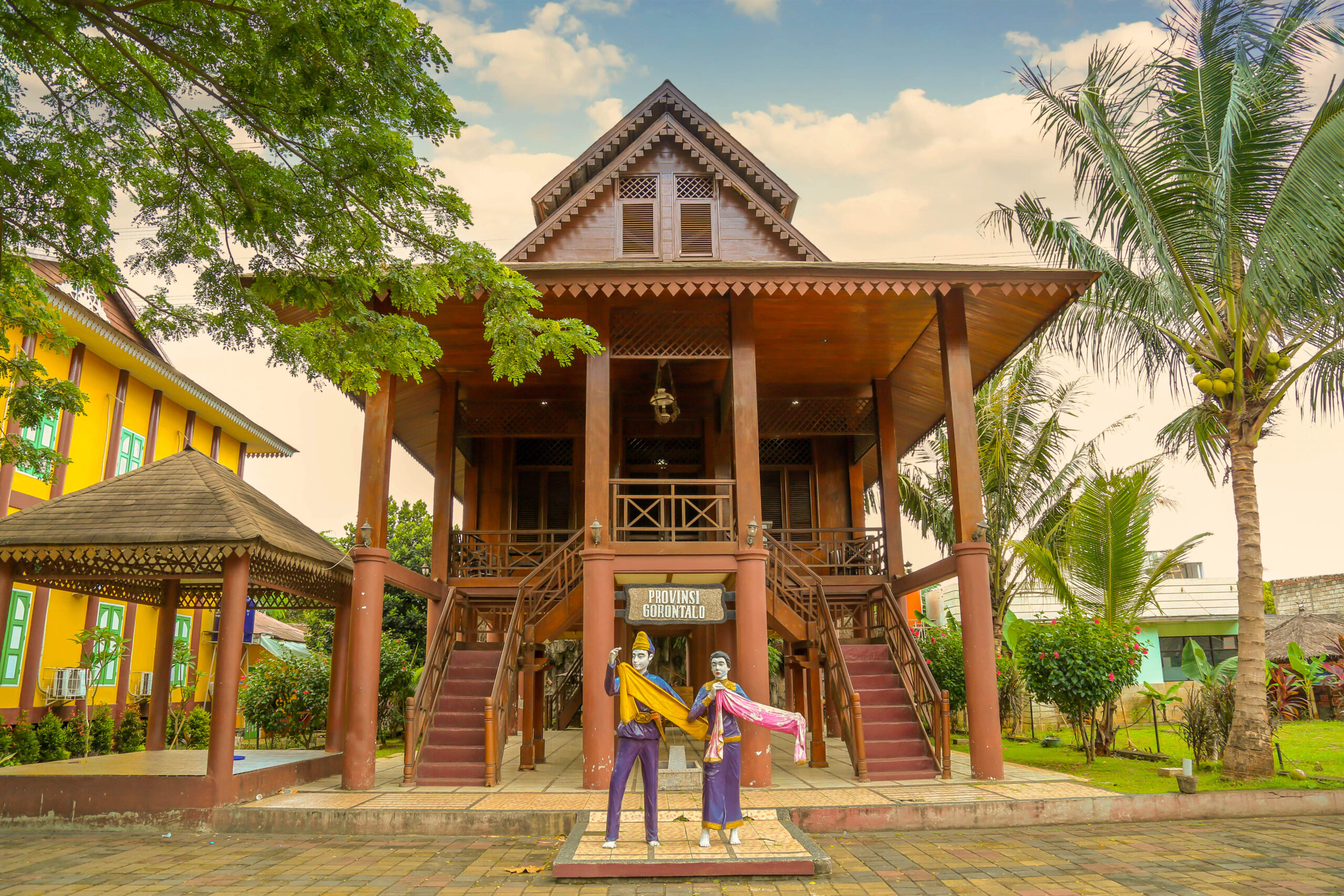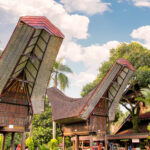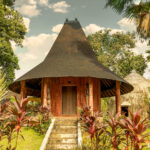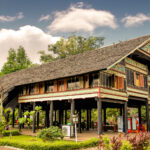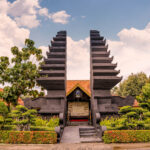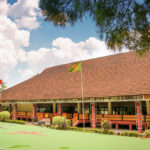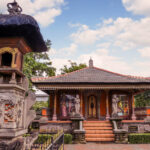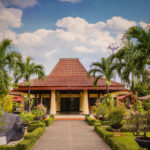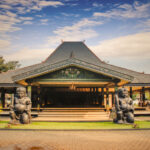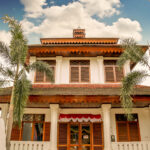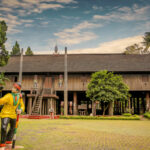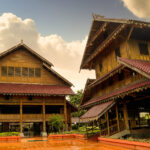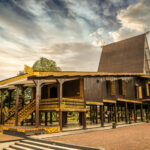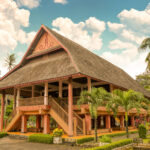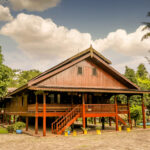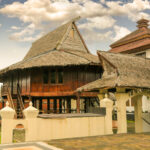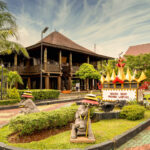Matoduwolo!
Thanks to its strategic position facing the Tomini Gulf to the south and the Sulawesi Sea to the north, Gorontalo—a land steeped in over 400 years of history—has long been a center of education and trade. Here, the tradition of communal deliberation is preserved across generations through the People’s Consultative Body, known as Bantayo Poboide, led by a Bate and involving all parties in the decision-making process.
A visit to Gorontalo would not be complete without exploring its breathtaking coastal destinations. Beaches such as Bolihutuo, Olele Marine Park, Tomini Bay, Indah Beach, Karang Citra, Marisa Beach, Boalemo Indah, Limba Island, and Tilamuta White Sand Beach are waiting to be discovered. In addition, local culinary specialties like Dutch-influenced breads, cakes, and pastries offer a unique taste of Gorontalo’s colonial past.
At TMII, the Gorontalo Pavilion presents the traditional Ma’lihe house, derived from the word mahligai (palace). Locals typically reside in Ma’lihe or Potiwoluya houses—square or rectangular stilt houses built on pillars ranging from one to four meters in height. Featuring thatched rumbia roofs and bamboo woven walls, these homes include a bedroom, veranda, kitchen, and living room, with symbolic carvings adorning the doorways.
The traditional house serves as a cultural stage where Gorontalo’s heritage comes to life. In the courtyard, a pair of dancers performs the Saronde Dance, a traditional wedding ritual. The bridal platform (Puade) in the front room is used during circumcision wedding ceremonies and Buhutalo, a rite of passage marking a noble girl’s first menstruation.
Displayed inside are two traditional wedding costumes: Wolimomo for the wedding ceremony and Biliu for after the marriage rites. The rooms also feature bridal beds and various cultural artifacts that reflect the identity of Gorontalo.
DID YOU KNOW?
Islam plays a deeply rooted role in the lives of the Gorontalo people. They live by the philosophy: “Adati hula-hula’a to Sara’a, Sara’a hula-hula’a to Kuru’ani”, which means “Customs are founded upon Sharia, and Sharia is founded upon the Quran.” This belief shapes both their cultural values and way of life.

